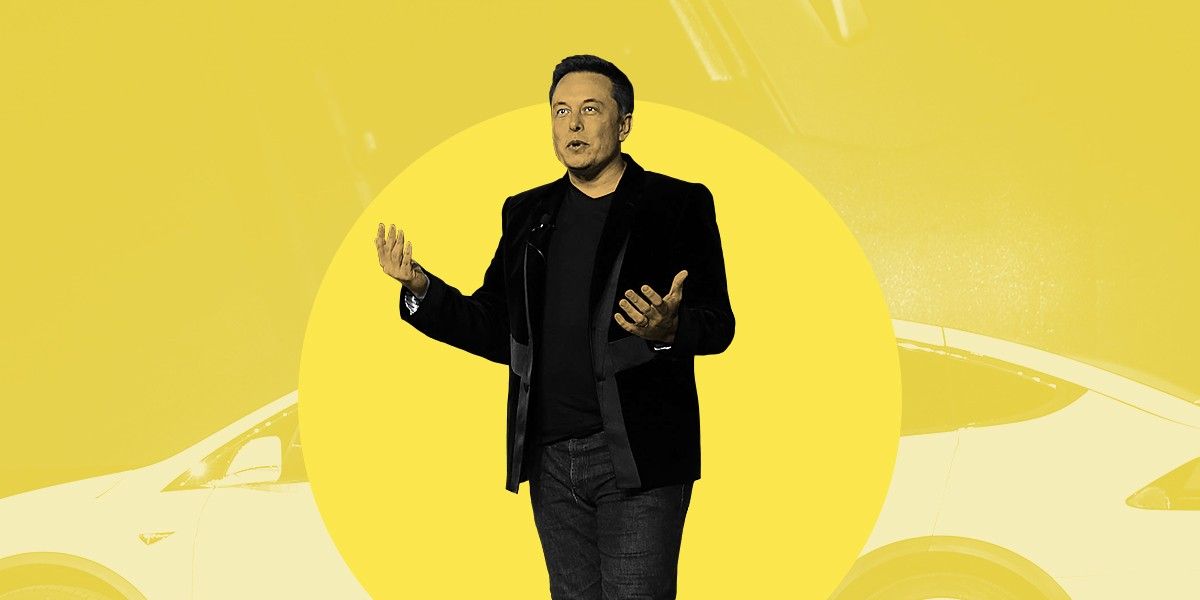The real question is why we would follow this survey in the first place. Surveys are terrible. They seriously suck. I cannot emphasize this enough. There are good reasons why professional social scientists rarely use them as data sources, and the analysis presented in the linked article would certainly not pass any legitimate peer review. Surveys almost always suffer from issues with various forms of bias and construct validity, and the authors of this article do precisely zero to discuss how they addressed any of these problems, or even if they addressed them at all.
In this case, the probable construct validity issue is that the report's authors assert that the survey results indicate likely problems with Democrats not wanting to buy Teslas due to Elon's recent behavior and political participation. However, this hypothesis appears to have had no actual validation, just assumption and conjecture presented as fact or as "the results suggest X" without any further discussion of reasons why the results actually might
not suggest X and what research and analysis was done to rule out such possibilities. Jumping to conclusions with insufficient evidence and without proper attempts to falsify is not science, it's opinion and intuition.
Is there any past data indicating, at a minimum, a meaningful statistical correlation between survey results such as this one and actual consumer behavior? Did the researchers actually go try to verify whether Democrats, Republicans and Independents are actually changing their EV buying trends, market research, word-of-mouth promotion rates, or any other important related behaviors as a result of Elon’s choices? That would be the obvious first step for any attempt to establish construct validity here, and the authors of this article presented no indication that they even thought to ask this question, let alone try to answer it by integrating other data sources beyond just the survey itself in isolation. Correlation between the measured variable and the implicit outcome it's supposed to track must be demonstrated before arguing for the likely existence of a particular causal mechanism. This is like surveying people "Does especially hot weather make you more likely to get a second scoop on your ice cream cone?" and then not following up by checking for a statistical relationship between the ambient temperature and actual sales data at the ice cream truck.
Here's another red flag. The article says:
Making a declarative statement like this without mentioning the possible influence of negative response bias is bad form. Often survey respondents are more likely to express negative opinions than positive ones. It's possible that this effect explains the entire differential observed in the survey results. The authors have a professional responsibility to discuss this and they failed to do so.
Next, let's look at the Personal Behaviors responses to get a sense of how representative the survey sample group is of the broader US car-buying population. For example, 8% of respondents already drive an EV, 13% have home solar, 13% have an e-bike that they choose to ride instead of driving, and 19% have a home heat pump. Also, 87% of respondents said they are registered voters, far more than the actual US average of closer to 67% of eligible adults being registered, which likely means that the sample group is on average more politically motivated than the general American population. Overall, this group of people obviously differs from the US population in some key ways that might be relevant to how much they care about Elon’s political activism.
View attachment 920601
View attachment 920613
Does the survey report disclose how this sample of individuals was selected, how the researchers motivated respondents to spend time answering a detailed 50-question survey about climate change topics, what the purpose of the study was, how it was funded, or what potential ethical conflicts of interest may have affected Benenson Strategy Group's ability to conduct this research in an impartial, objective manner? No, no, no, no, and...no.
You know what, since they didn't discuss this whatsoever, let's look at some of
their clients in the political and lobbying sphere. Hmm...I see 100% of the listed political campaign clients were for Democrats or major organizations within the Democratic Party. I see David Axelrod quoted as thanking Benenson for helping President Obama get elected. I see lobbying groups almost entirely in support of American leftist politics, with a couple nonpartisan neutrals like AARP and Pew Charitable Trust. I also see 100% of the ballot initiative campaign clients were in support of Democrat-sponsored causes such as Medicaid expansion and minimum wage increases. I'm not making a personal statement of my own affiliation here but this does indicate that Benenson is very unlikely to be a neutral, unbiased research organization for answering questions regarding US politics and this point raises a lot of concerns about what agenda Benenson may have had in publishing this article about Elon/Twitter/Tesla.
View attachment 920631
View attachment 920632
View attachment 920633
View attachment 920636
Further, in the article about Elon and Tesla, the authors cite a heavily biased Vox article that, among other things, presented this graph from YouGov, the other organization that recently did widely publicized political polling in relation to the EV market and Tesla. The results apparently indicate that Toyota and BMW are now more preferred than Tesla by more prospective EV buyers in America and that even in March 2022 (before the announcement of Elon’s intent to buy Twitter) Tesla was preferred by only 17%. I can't help but notice that this polling result does not remotely align with actual sales data and other more reliable indications of EV interest like Google search trends. Also, bear in mind that Vox is a consistently left-leaning media company, which adds more suspicion of bias and perhaps ulterior motives affecting this article.
View attachment 920592
In summary, I would recommend that everyone completely disregard this survey.




